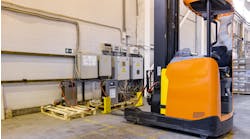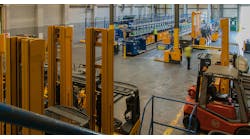I keep a Hot Wheels toy car hanging in its original package on a bulletin board in my office. I bought it at one of those giant retail stores several years ago. It's a modified Nash Metropolitan painted deep purple with flames on the side. The front wheels are red. The rear wheels are missing.
In this world where manufacturing, distribution, and order fulfillment are taken for granted, whenever I hear the business strategy and marketing folks say that quality is a "given," I think of that Hot Wheels car.
Not only did that car pass through the final quality check at the end of some assembly line in Malaysia, it wasn't caught by either the person who unpacked it from the box and put it on the shelf, or the cashier when she rang up my purchases. (Unless she was a mind reader and knew I wanted a toy car without rear wheels because I thought I could write about it someday.)
As that defective toy car shows, making and delivering a quality product is not a "given." It requires an ongoing commitment and focus. It also requires the attention of your supply-chain partners, be they transportation carriers, logistics service providers, wholesalers or retail customers.
Another Hot Wheels vehicle sits on my desk. It's a Caterpillar lift truck. Over 25 years old, it came from Malaysia too, which says something about how long some companies have been playing the globalization game.
That little yellow lift truck brings to mind another widespread management "given": Safety. Every year lift trucks are involved in thousands of workplace accidents. As reported in the most recent Census of Fatal Occupational Injuries by the Bureau of Labor Statistics (2004), "material moving" occupations, which include forklift operators, accounted for 271 deaths on the job, up 8% from the previous year.
Safety is not something most corporate chieftains generally think much about. It's not something most people think about too much at the start of their shift either. Those "Safety First!" signs quickly fade into the periphery of every-one's vision like wallpaper. But as the injury and fatality data shows, safety cannot be taken for granted.
Quality managers and safety managers have some of the toughest jobs in industry. Nobody really notices how they're doing until something goes wrong. When product defects go through the roof, for example, or when someone is severely injured. The more successful they are, and the longer they go unnoticed, the more difficult their job becomes.
That's why it's every manager's and every supervisor's job to remind people every day to pay attention to product quality, and pay attention to what they and their co-workers are doing that might hazardous. As soon as your people start thinking about quality or safety as a "given," you know you're in trouble.


